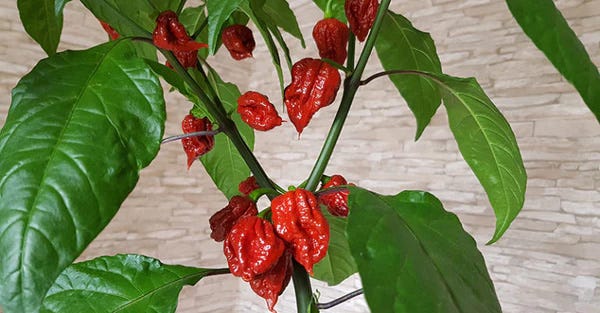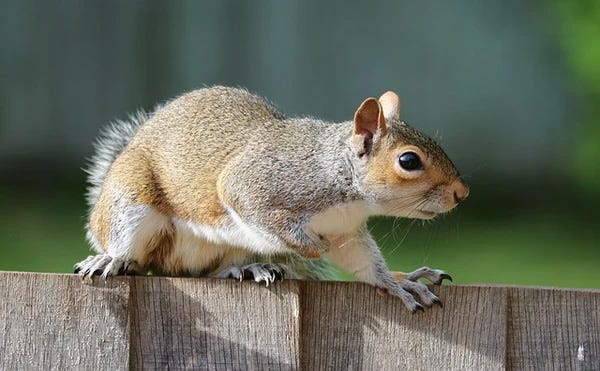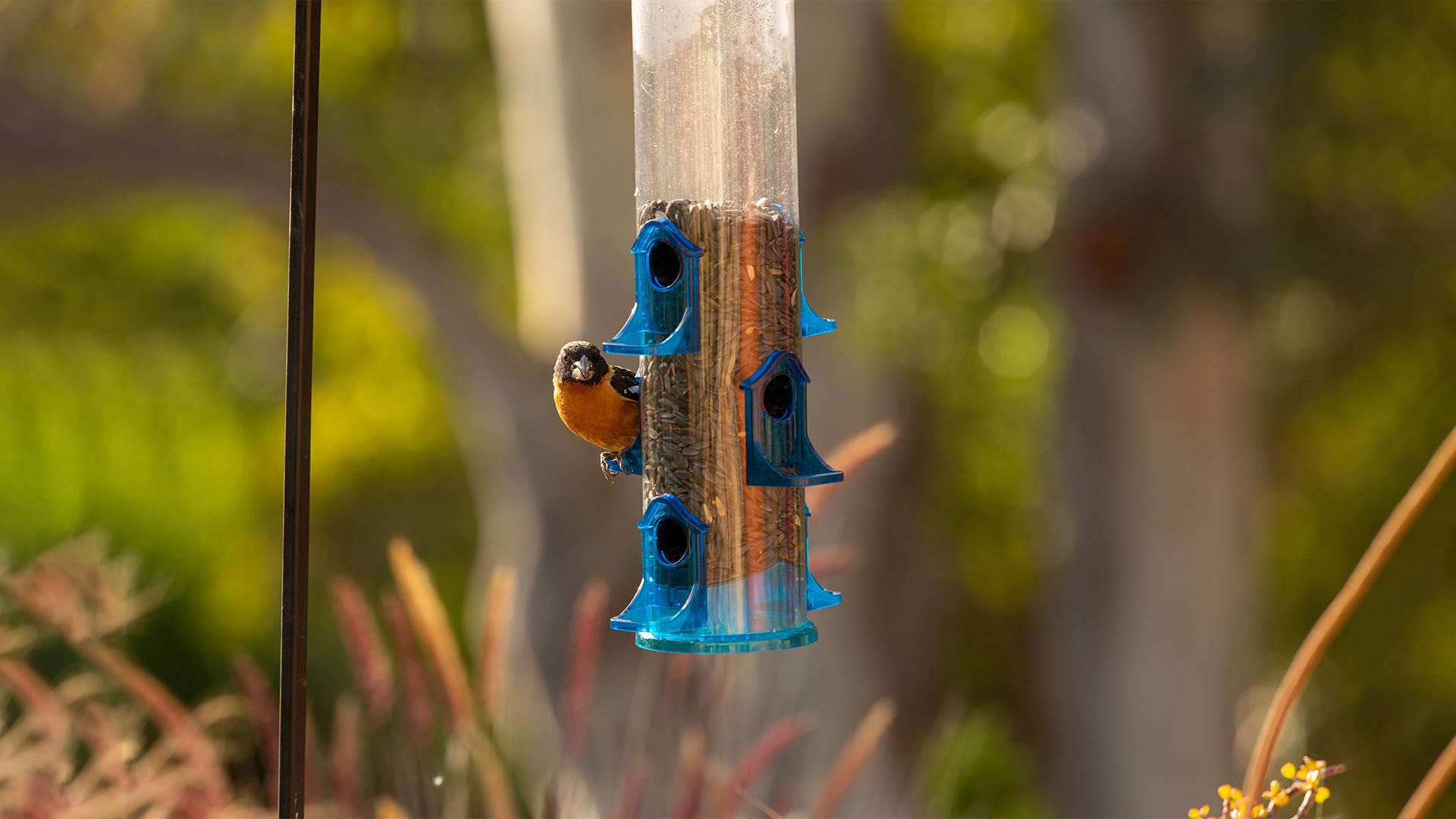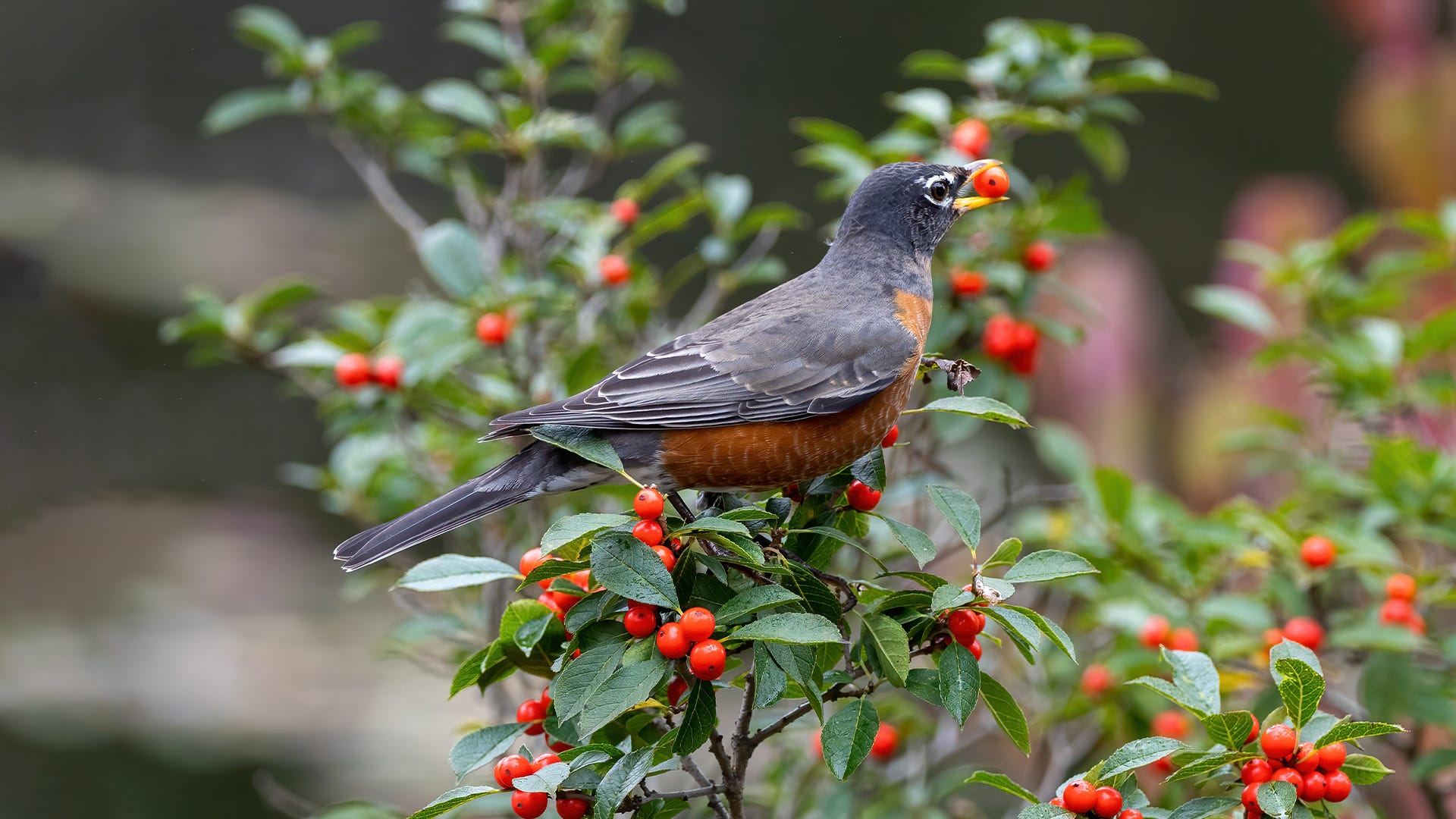
It's a little ironic that we choose to serve chicken wings slathered in caustic, fiery hot pepper sauce. Many birds enjoy spicy peppers too—but only because they can't actually feel the heat.
We know that birds have different taste receptors from humans. In fact, all animals taste flavors differently (cats lack the ability to taste sweetness). Because birds are biologically unable to register the effects of capsaicin—the chemical that makes peppers feel “hot” in your mouth—they don't feel the burn like we do.

New Meaning for “Eating like a bird”
Imagine biting into a Carolina reaper, the world's hottest pepper. Clocking in at 200 times hotter than a jalapeño, this shriveled little red fruit should probably be sold with a gallon of milk and a sick note. Eating it could cause symptoms for humans such as:
- Intense mouth “burning” or discomfort
- Stomach pain
- Heartburn
- Diarrhea
For birds, it's just another snack. Some have speculated that eating hot peppers may also cause stomach discomfort for birds too, but that's still a mystery.
An Evolutionary Advantage for Hot Pepper Plants
Mammals, like mice and squirrels, ordinarily go wild over mild and sweet pepper plants. But, because these rodents share the same spicy food receptors that humans have, they tend to avoid hot peppers as food sources. That's just fine with the pepper plants.
Jalapeños, habaneros, and the aptly named bird's eye chili plants have evolutionarily become selective about the animals that eat their fruit. These plants want their fruit to be eaten by birds—which travel long distances—in order to spread their seed effectively.

How birds help hot pepper plants
Hot pepper plants have evolutionarily become
selective about the animals that eat their fruit.
These plants want their fruit to be eaten by birds.
Birds are immune to the burn of hot peppers.
Birds are great at distributing pepper
plants because they don't digest seeds.
These peppers are planted far and
wide, as birds will travel miles before
passing the seeds.
The pepper plants couldn't ask for a better seed distributor than a bird. Not only are birds immune to the burn of hot peppers—they don't digest the seeds either. That means they pass through the bird intact. The bird's gut even separates the seeds from the pulp of the fruit, meaning they're more likely to germinate in the ground.
Since many birds travel miles before they pass the seeds with their droppings, the plant's offspring are planted far and wide. Conversely, mammals tend to be poor at spreading seed; they usually don't get very far before passing the them.
A Healthy Food for Birds
Hot peppers are more than just a meal for birds. Chilies are a good source of Vitamin A, which is known to improve feather quality, color and shine. Hot peppers are also widely believed to have health benefits for humans, including antioxidants, immunity support and possibly even pain relief. The same may be true for birds.

Hot Peppers as a Squirrel Deterrent
Since squirrels can feel the burn of hot peppers and birds can't, initially, it seems sensible to use this to our advantage. In fact, you can buy bird seed with capsaicin additives for this reason. While hot pepper spiked seed deters squirrels, it also irritates the squirrels' mouths and causes significant discomfort.
Why not keep squirrels out of your seed using a less harmful method? Other highly-effective options include:
- Squirrel-proof/resistant feeders
- Baffles
- Bird feeder cages
- A free-standing pole for your feeder
Birds will always be able to eat spicier food than you. But don't feel bad–take comfort in the fact that you can actually taste and enjoy the heat of chilies.







